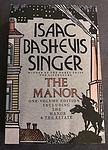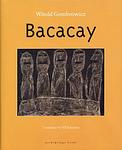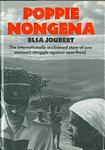The Greatest Polish, South African "Fiction" Books Since 1950
Click to learn how this list is calculated.
This list represents a comprehensive and trusted collection of the greatest books. Developed through a specialized algorithm, it brings together 300 'best of' book lists to form a definitive guide to the world's most acclaimed books. For those interested in how these books are chosen, additional details can be found on the rankings page.
Genres
Countries
Date Range
Reading Statistics
Click the button below to see how many of these books you've read!
Download
If you're interested in downloading this list as a CSV file for use in a spreadsheet application, you can easily do so by clicking the button below. Please note that to ensure a manageable file size and faster download, the CSV will include details for only the first 500 books.
Download-
1. Disgrace by J M Coetzee
"Disgrace" is a novel that explores the life of a middle-aged professor in South Africa who is dismissed from his position after having an affair with a student. After losing his job, he moves to the countryside to live with his daughter, where they experience a violent attack that significantly alters their lives. The story delves into themes of post-apartheid South Africa, racial tension, sexual exploitation, and the struggle for personal redemption.
-
2. Waiting for the Barbarians by J M Coetzee
The novel is set in a small frontier town of an unnamed empire, where the magistrate lives a life of civil service and relative peace. His world is disrupted when the Empire declares a state of emergency due to rumors of barbarian uprising. The magistrate becomes a critic of the Empire's brutal and inhumane methods of dealing with the perceived threat, which leads to his arrest and torture. As he tries to understand his role in the vast political machinery, he also grapples with questions of power, justice, and humanity.
-
3. Solaris by Stanislaw Lem
The novel is a psychological exploration of human limitations and failures set against the backdrop of space exploration. When a psychologist arrives at a research station orbiting a distant planet covered entirely by a sentient ocean, he discovers the crew in disarray, haunted by physical manifestations of their subconscious fears and desires. As he grapples with the ocean's inscrutable nature and its unsettling ability to materialize human thoughts, he is forced to confront his own guilt and regret, embodied by the apparition of his deceased wife. The story is a philosophical meditation on the impossibility of truly understanding alien intelligence and the painful isolation of the human condition.
-
4. Life & Times of Michael K by J M Coetzee
Set in South Africa during a civil war, the novel follows the journey of Michael K, a simple gardener with a cleft lip. When his mother falls ill, he attempts to take her back to her rural birthplace. After she dies en route, Michael continues the journey alone, struggling to survive in a war-torn landscape, while also being caught up in the bureaucratic red tape of the dystopian society. The story explores themes of freedom, survival, and the human spirit's resilience against adversity.
-
5. Burger's Daughter by Nadine Gordimer
"Burger's Daughter" is a novel centered around Rosa Burger, a white woman in South Africa during the apartheid era. The narrative delves into Rosa's life and struggle to find her identity, while also dealing with the legacy of her parents who were anti-apartheid activists. This story provides a deep look into the political and social climate of South Africa during a time of racial segregation and oppression.
-
6. July's People by Nadine Gordimer
"July's People" is a novel set in a hypothetical future where South Africa's apartheid system has collapsed and the nation is embroiled in a brutal civil war. The story follows a liberal white family who, fleeing the violence, are taken in by their black servant, July, in his rural village. The book explores the power dynamics and complexities of their relationship, as they navigate this new reality where traditional roles are reversed, and grapple with issues of race, class, and privilege.
-
7. A Dry White Season by Andre Brink
Set in apartheid-era South Africa, "A Dry White Season" follows the story of Ben Du Toit, a white schoolteacher who becomes involved in the fight against the system after his gardener's son is brutally beaten by the police. As he delves deeper into his quest for justice, he becomes increasingly isolated from his community and his family, and ultimately pays the highest price for his convictions. The novel is a powerful exploration of the devastating effects of racial injustice and the courage it takes to stand against it.
-
8. The Painted Bird by Jerzy Kosinski
"The Painted Bird" is a dark and harrowing novel set in Eastern Europe during World War II. The story follows a young, unnamed boy of unknown ethnicity who is sent by his parents to live in a remote village for safety. However, he is instead subjected to brutal violence, abuse, and superstition by the superstitious peasants. The book explores themes of survival, human cruelty, and the loss of innocence in the face of war and hatred.
-
9. The Magician of Lublin by Isaac Bashevis Singer
This novel tells the story of Yasha Mazur, a talented and renowned 19th-century Jewish magician living in Poland. Yasha is a complex character, torn between his own desires and the expectations of his religious community. He leads a double life, juggling his career, his marriage, and his multiple affairs. As he grapples with his conflicting identities, Yasha is forced to confront his own moral failings and the consequences of his actions. His journey is one of self-discovery and redemption, offering a nuanced exploration of faith, love, and the human condition.
-
10. Gimpel the Fool by Isaac B Singer
"Gimpel the Fool" is a collection of short stories that portray the life of Gimpel, a simple baker who is often deceived by the people in his town. Despite the continuous deceit, Gimpel maintains his faith in humanity and never seeks revenge. Throughout the stories, the protagonist's innocence and naivety are contrasted with the harsh realities of the world, exploring themes of faith, forgiveness, and the inherent goodness of people.
-
11. The Futurological Congress by Stanislaw Lem
In a dystopian future, the protagonist attends a scientific conference where he is exposed to a new hallucinogenic drug that transports him to a surreal and chaotic world. As he navigates through this bizarre reality, he becomes entangled in a conspiracy involving mind-altering technology, political manipulation, and the struggle for power. This satirical novel explores themes of reality, identity, and the dangers of unchecked technological advancements.
-
12. Dusklands by J M Coetzee
"Dusklands" is a novel divided into two distinct parts, each examining the theme of imperialism. The first part follows a psychologically unstable American government researcher during the Vietnam War, who is tasked with developing propaganda to justify the conflict. The second part is a historical narrative set in the 18th century, exploring the violent colonization of South Africa by the Dutch. The stories parallel each other, highlighting the destructive nature of imperialism and the psychological effects it has on individuals.
-
13. The Manor by Isaac Bashevis Singer
"The Manor" depicts the complex interplay between Jews and Polish nobility in 19th century Poland. The narrative focuses on the lives of two Jewish families, the Kalinowskis and the Dembowskis, who are tied together by marriage. As they navigate the political and social changes of the time, the characters grapple with issues of faith, tradition, assimilation and the struggle for survival. The book provides a vivid portrayal of Jewish life in Poland during a period of significant change and upheaval.
-
14. In the Heart of the Country by J M Coetzee
Set in South Africa, this novel tells the story of a woman living on a remote farm who is isolated not only geographically but also emotionally and psychologically. After her father marries his young mistress, the protagonist's life spirals into madness and tragedy. The narrative explores themes of loneliness, power dynamics, and the harsh realities of life in apartheid-era South Africa, all presented through the protagonist's fragmented and unreliable perspective.
-
15. Drive Your Plow Over the Bones of the Dead by Olga Tokarczuk
This novel centers around an eccentric woman living in a remote Polish village, who becomes embroiled in a series of mysterious deaths occurring in her community. As she investigates, she is drawn into a deeper exploration of nature, astrology, and the human psyche, all while navigating the dismissive attitudes of the local law enforcement. The narrative is a blend of dark comedy, philosophical inquiry, and mystery, with a strong underlying commentary on animal rights and environmentalism.
-
16. Bacacay by Witold Gombrowicz
"Bacacay" is a collection of darkly humorous and surreal short stories that delve into the absurdities of human behavior and social norms. The tales are set in a variety of locations and time periods, featuring a cast of eccentric characters who find themselves in bizarre and often grotesque situations. Through sharp wit and a playful manipulation of language, the stories satirize the pretensions and follies of society, challenging the reader's perceptions of reality and the boundaries of conventional storytelling.
-
17. The Beautiful Mrs. Seidenman by Andrzej Szczypiorski
Set in Nazi-occupied Warsaw, the novel tells the story of Mrs. Seidenman, a blonde, blue-eyed Jewish widow who is arrested by the Gestapo. The narrative revolves around the eclectic group of characters in her life, including a young man who is in love with her and a lawyer who is determined to save her. The book provides a vivid and poignant depiction of life under Nazi rule, exploring themes of survival, resistance, and the resilience of the human spirit.
-
18. Ancestral Voices by Etienne van Heerden
"Ancestral Voices" is a haunting novel set in South Africa during the apartheid era. The story follows a young boy who grows up in a small rural town, navigating a complex web of familial relationships and secrets. As he matures, he becomes increasingly aware of the racial and social injustices that surround him. The book explores themes of identity, heritage, and the harsh realities of life under apartheid, all weaved together with a deep sense of the mystical and the supernatural.
-
19. Trans Atlantyk by Witold Gombrowicz
"Trans Atlantyk" is a semi-autobiographical novel that explores the author's experiences as a Polish writer living in Argentina during World War II. The book delves into themes of identity, language, and cultural displacement, as the protagonist navigates the challenges of being an outsider in a foreign land. With a blend of humor and introspection, the novel offers a unique perspective on the complexities of exile and the struggle to maintain a sense of self in unfamiliar surroundings.
-
20. The Conservationist by Nadine Gordimer
The book is a character-driven novel set in South Africa during the apartheid era. The protagonist is a wealthy, white industrialist who buys a farm with the intention of using it as a weekend retreat. However, the farm proves to be unprofitable and difficult to manage, and the protagonist's life becomes intertwined with the lives of the black people who live and work on the land. The narrative explores themes of ownership, identity, and the struggle for meaning in a racially divided society.
-
21. Inkinnsela Yase Mgungundlovu by Sibusiso Nyembezi
"Inkinnsela Yase Mgungundlovu" is a captivating novel that delves into the lives of the people living in the village of Mgungundlovu. Set during the time of the Zulu kingdom, the story follows the struggles and triumphs of various characters as they navigate through love, friendship, and societal expectations. With rich cultural descriptions and vivid storytelling, the book offers a glimpse into the complexities of life in rural South Africa, highlighting themes of tradition, identity, and the pursuit of dreams.
-
22. The Blood Knot by Athol Fugard
"The Blood Knot" is a powerful play that explores the complex relationship between two half-brothers, Morris and Zachariah, who live together in a small shack in apartheid-era South Africa. Morris, who is light-skinned, dreams of escaping their impoverished life, while Zachariah, who is dark-skinned, is content with their routine. As tensions rise and their differences become more apparent, the brothers navigate themes of identity, race, and the limitations imposed by society, ultimately leading to a shocking and heartbreaking climax.
-
23. The Seance and Other Stories by Isaac Bashevis Singer
"The Seance and Other Stories" is a collection of short stories that delve into the mystical and supernatural aspects of Jewish folklore. The tales are set in various locations and time periods, from pre-war Poland to contemporary America, and feature a wide range of characters, including rabbis, scholars, demons, and dybbuks. These stories explore themes of faith, morality, love, and the struggle between good and evil, all while maintaining a blend of humor, irony, and profound insight into the human condition.
-
24. Short Friday: And Other Stories by Isaac Bashevis Singer
"Short Friday: And Other Stories" is a collection of tales that delve into the rich tapestry of Jewish life, both in the Old World and the New. The stories explore themes of faith, love, sin, and the struggle between good and evil. They feature a range of characters, from rabbis and scholars to demons and dybbuks, each grappling with their own moral and existential dilemmas. The narratives are infused with a unique blend of humor, wisdom, and a profound understanding of the human condition.
-
25. Die Swerdjare Van Poppie Nongena by Elsa Joubert
"Die Swerdjare Van Poppie Nongena" is a powerful and poignant novel that tells the story of Poppie, a black South African woman, during the apartheid era. Set in the 1960s, Poppie faces immense challenges as she navigates the oppressive system that separates her from her family and forces her to endure constant discrimination and hardship. Through Poppie's experiences, the book explores themes of resilience, love, and the human spirit's ability to triumph in the face of adversity.
Reading Statistics
Click the button below to see how many of these books you've read!
Download
If you're interested in downloading this list as a CSV file for use in a spreadsheet application, you can easily do so by clicking the button below. Please note that to ensure a manageable file size and faster download, the CSV will include details for only the first 500 books.
Download






















